Finding new ways to give your plants nutrients can be a confusing process. Do you want to try using bone meal or wood ash on your conifer trees or shrubs but don't know if this is a good idea? Are these two things generally safe to use on conifer varieties?
Luckily, we've done some digging and have the answers below in this post!
In general, using bone meal or wood ash for a conifer won't be very helpful. First, bone meal is phosphorus-rich and is best for fertilizing flowering plants. Conifers are not flowering and fall into more of an evergreen classification.
Additionally, spreading wood ash near the base of your conifer can alter its pH, often bringing the levels up and lowering acidity: conifers love acidity, so this isn't a good idea.
Instead, we recommend shifting gears to a nitrogen-based fertilizer or even a natural additive like coffee grounds or compost.
As we start this post, we will cover all things conifers and discuss whether bone meal and wood ash are beneficial to them or not. If you're new to this tree and shrub species, need help finding a fertilizer, or have additional questions, we're here to help. With that said, let's dive right in!
![Chamaecyparis lawsoniana, known as Port Orford cedar or Lawson cypress, is conifer in genus Chamaecyparis, family Cupressaceae, Is Bone Meal Or Wood Ash Good For Conifers? [& What To Use Instead]](https://gardentabs.com/wp-content/uploads/2022/11/Is-Bone-Meal-Or-Wood-Ash-Good-For-Conifers-What-To-Use-Instead.png)
Should I Use Bone Meal On My Conifer?
Although using bone meal can be beneficial to some plants, that is not usually the case with conifers. In general, bone meal is an excellent source of phosphorus, which can help younger conifer develop roots.
However, for older or somewhat established trees/shrubs, sprinkling bone meal near conifer won't benefit your plant much.
You will usually find phosphorous-based fertilizers in the flower department, the same for bone meal. Since conifers are evergreen trees and shrubs, you don't need to use a flowering species product or alternative for them.
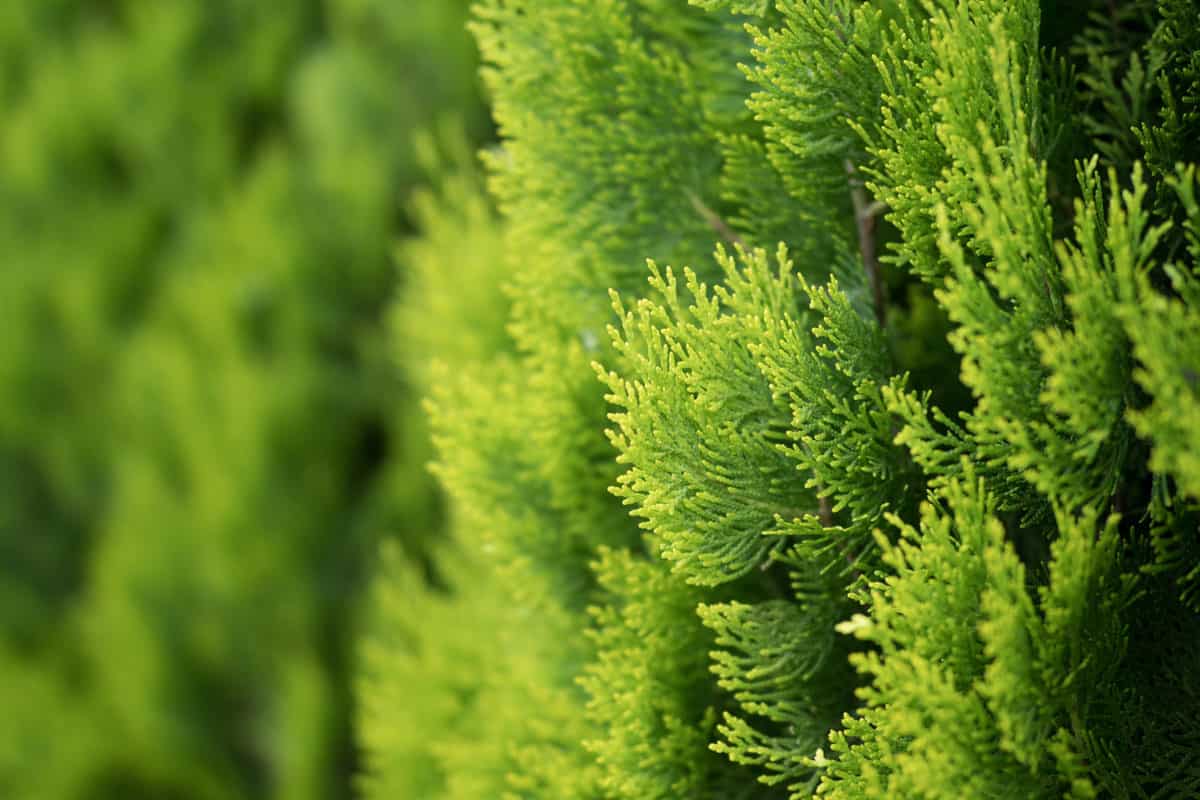
Again, that's not to say adding a bit of bone meal, and another fertilizer won't help conifer at all: it just won't do much for overall health or growth.
How Much Bone Meal Does A Conifer Need?
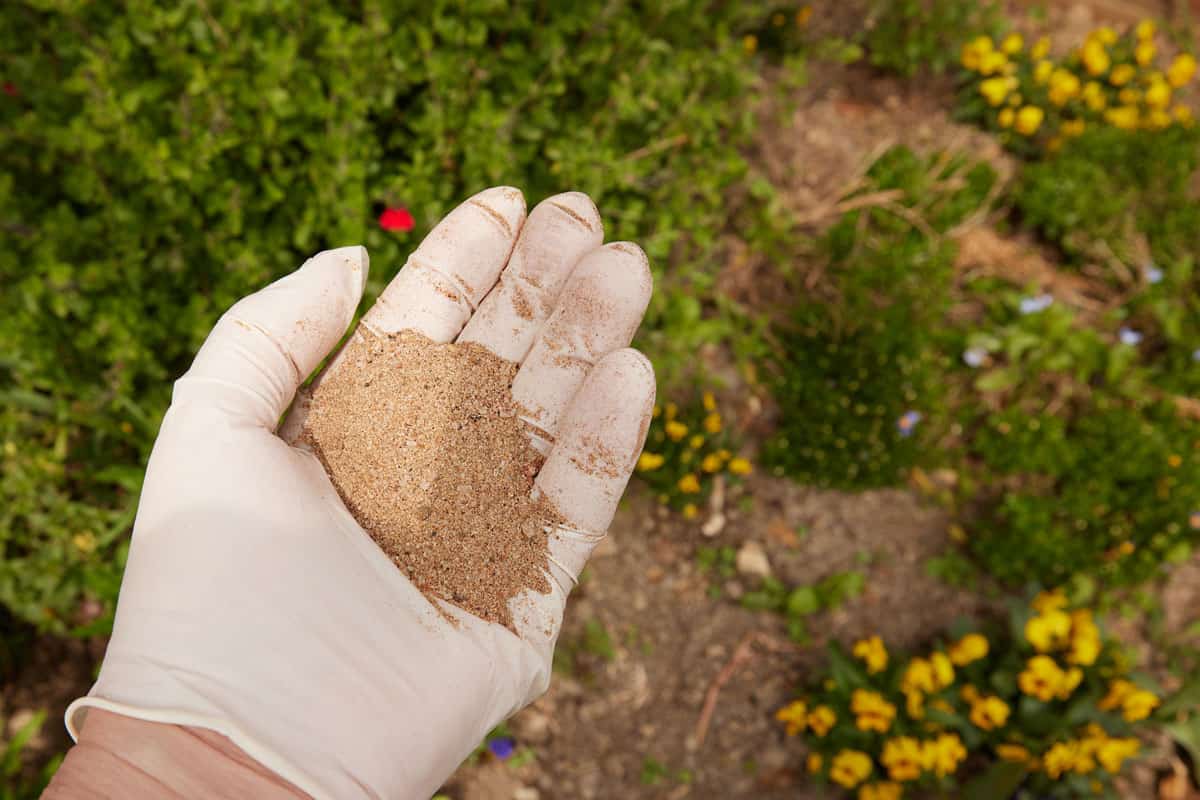
Technically, you don't need to use any bone meal on a conifer. However, if your tree or shrub is newly planted, you can add bone meal to the ground to help promote root development.
Furthermore, conifers in pots can also benefit from phosphorus. Typically, potted conifers require more energy and nutrients from their soil, so in that case, we think it's a good idea.
According to Jobes, bone meal also stays in the soil for about four months post-application, so if you use it in the spring, you won't need to use it again for the year.
In general, it's better to use bone meal sparingly for conifers and instead focus on nitrogen-based fertilizers. So although the bone meal is better than wood ash for conifer, it's not required.
Should You Use Wood Ash For Conifers?
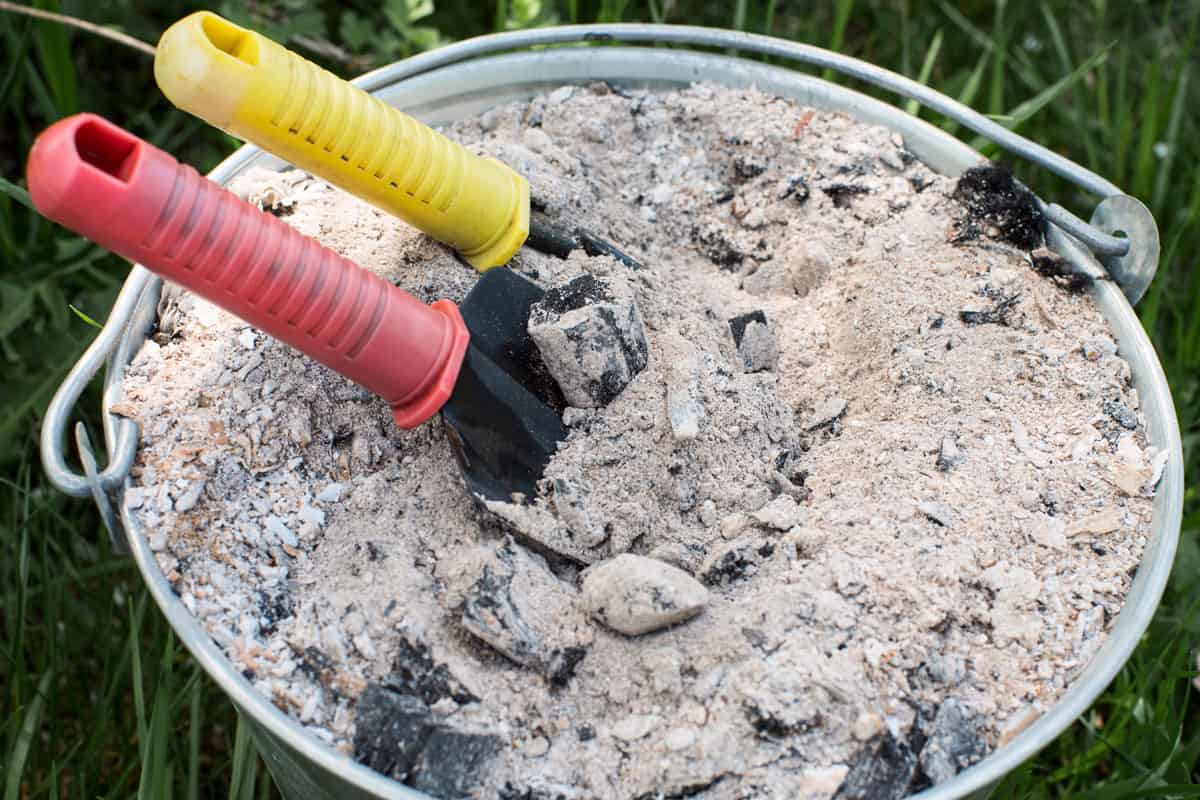
No. Using wood ash on a conifer tree or shrub isn't a good idea. Typically, wood ash is better suited for species like garlic, chives, leeks, lettuce, asparagus, and stone-fruit trees.
Therefore, applying wood ash to an evergreen isn't helpful and can mess with soil pH. Since conifers do best in acidic growing conditions, feeding them with wood wash can lower the acidity levels and cause them to slow down their growth.
However, according to Kellogg Garden, if you want to add wood ash to compost and then sprinkle it near conifers, that should be okay. As long as the rest of your compost is filled with acidic materials, your tree/shrub will be fine.
The key for conifers is giving them plenty of nitrogen. Unfortunately, both bone meal and wood ash don't contain enough nitrogen, which deems them somewhat useless for this evergreen species.
Can You Put Wood Ash Around Trees?
If you need to find a new way to use your leftover fireplace ashes, it could be helpful to sprinkle tiny amounts through your garden. However, if you want to use wood ash for conifers, we recommend mixing it into a compost pile and then using it near your tree/shrub.
Remember, wood ash is quite thick and can alter the pH of the soil. Although this can be helpful to plants that thrive in alkaline conditions, conifer does not fit that description.
So, to get rid of your ashes while also helping the environment around you, try to use small amounts as a stabilizer for super acidic ingredients in your compost, like coffee grounds.
In addition, if your soil becomes too acidic, you could use wood ash to try and raise that pH level.
What Nutrients Do Conifers Need?
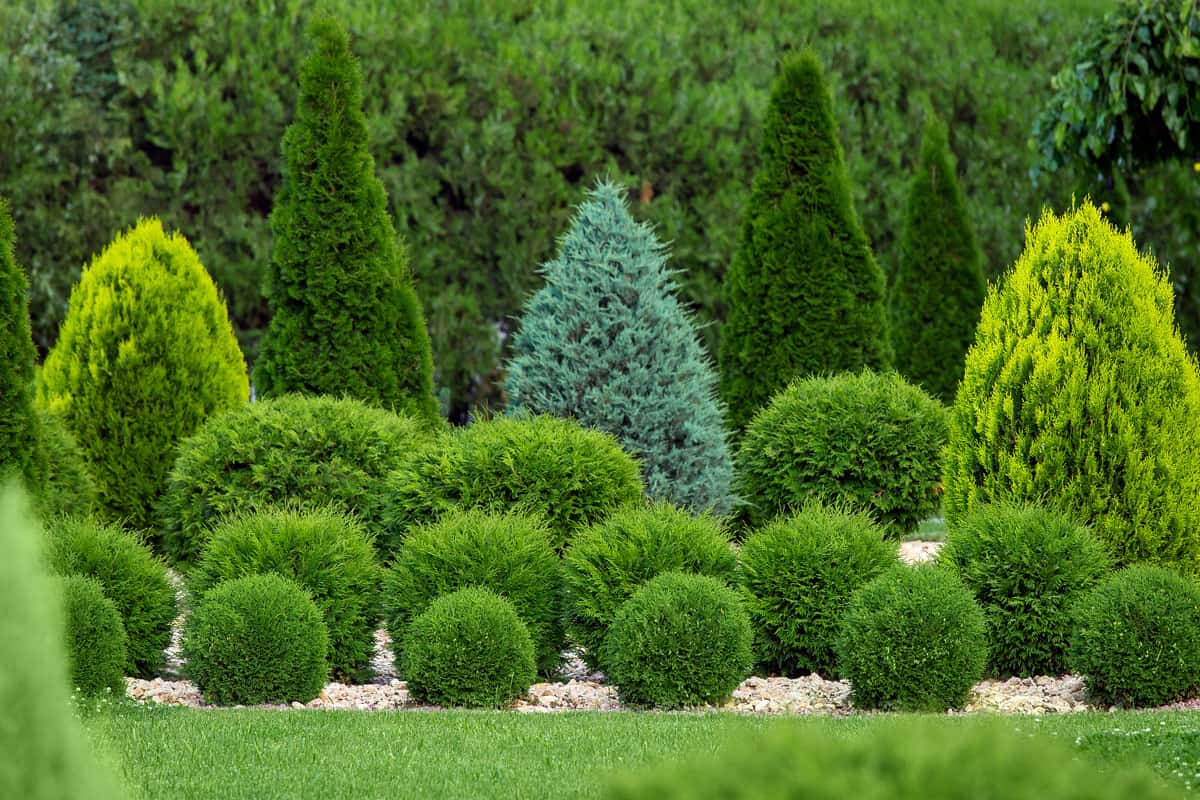
When it comes to "what" nutrients you should give conifers, this list includes:
- Nitrogen
- Phosphorus
- Magnesium
- Calcium
- Sulfur
It's also helpful to focus on micronutrients for conifers. According to experts, you don't need to give conifer too many micronutrients; instead, as little as a per million of a leaf's dry weight or less.
On the other hand, macronutrients, like nitrogen, phosphorus, etc., are the ones you'll need to feed your conifer more with.
According to Michigan State University, conifers have pretty low nutrient requirements. These evergreens are generally easy to manage and don't need much fertilizing or attention.
Therefore, overdoing it with fertilizers or other ingredients can do more harm than good. With conifers, it's better to take it easy, find nitrogen-rich formulas, and let them do their thing.
Remember, most conifers stay green all year, so there's not usually a need to worry about color.
How Often Should You Fertilize Conifers?
Since conifers aren't heavy feeders, you should be fine fertilizing them once per year. As we covered, these evergreen trees and shrubs don't require too many nutrients, so less fertilizer is best.
According to the Brooklyn Botanic Garden, it's generally better to feed conifers using a complete garden fertilizer such as 10-10-10 or 16-8-8 or a top dressing of manure.
Again, this isn't required for your tree or shrub to flourish, so don't feel obliged to fertilize. Some conifer growers rarely feed their plants and see great results, so this comes down to the individual plant.
One example of good fertilizing would be for a conifer that may not get enough sunlight. Sometimes, shadier gardens lack nutrients for the plants inside, which fertilizer can replenish.
Regardless, if you want to feed your conifers, try and do this once each year.
Southern Ag All Purpose Granular Fertilizer
This fertilizer works for all plants, has a balanced 10-10-10 granular formula, contains 10% Nitrogen, 10% Phosphorus (P205), 10% Potassium (K20) plus minor elements, and comes in a five-pound bag.
Follow this link to view it on Amazon.
What Time Of Year Should You Fertilize Conifers?
The best time to fertilize conifers would be in the early spring. Generally, you want to feed your conifer while it's actively growing, which will begin in the springtime.
Many experts recommend fertilizing in the early spring before the plants break dormancy or even in the late fall before the ground freezes.
This is because spring is generally moderate weather and comes with rainfall. Of course, depending on where you live, this timeline might need to be adjusted.
For example, in more tropical climates, you may be able to fertilize your conifer in the late winter, while someone in the colder north will need to wait until the last frost.
According to the University of Minnesota, you want to fertilize an evergreen between early April and mid-July. So, if you are somewhere with similar conditions, that's a great timeline to follow.
What Happens If I Over-Fertilize My Conifer?
If you give a conifer too much fertilizer, chances are, it will let you know. As we covered, a conifer doesn't typically require much or additional nutrients to thrive and grow.
So, if you give one too much feeding, you could notice discoloration, needle/foliage loss, and even sections of your tree looking burned. That's because the salt in fertilizers can burn a tree's roots, hence why it will take on such an unpleasant look.
Luckily, your conifer should heal itself if you let it be. We recommend waiting until next year to add more fertilizers to your evergreen, giving it plenty of time to get back on its feet.
A common mistake people make with conifers is giving one too much love. Even though you may want to give your tree or shrub springtime fertilizing, doing this excessively can devastate your plant.
That goes for any additive, whether bone meal, wood ash, nitrogen, or even compost.
To Wrap It All Up
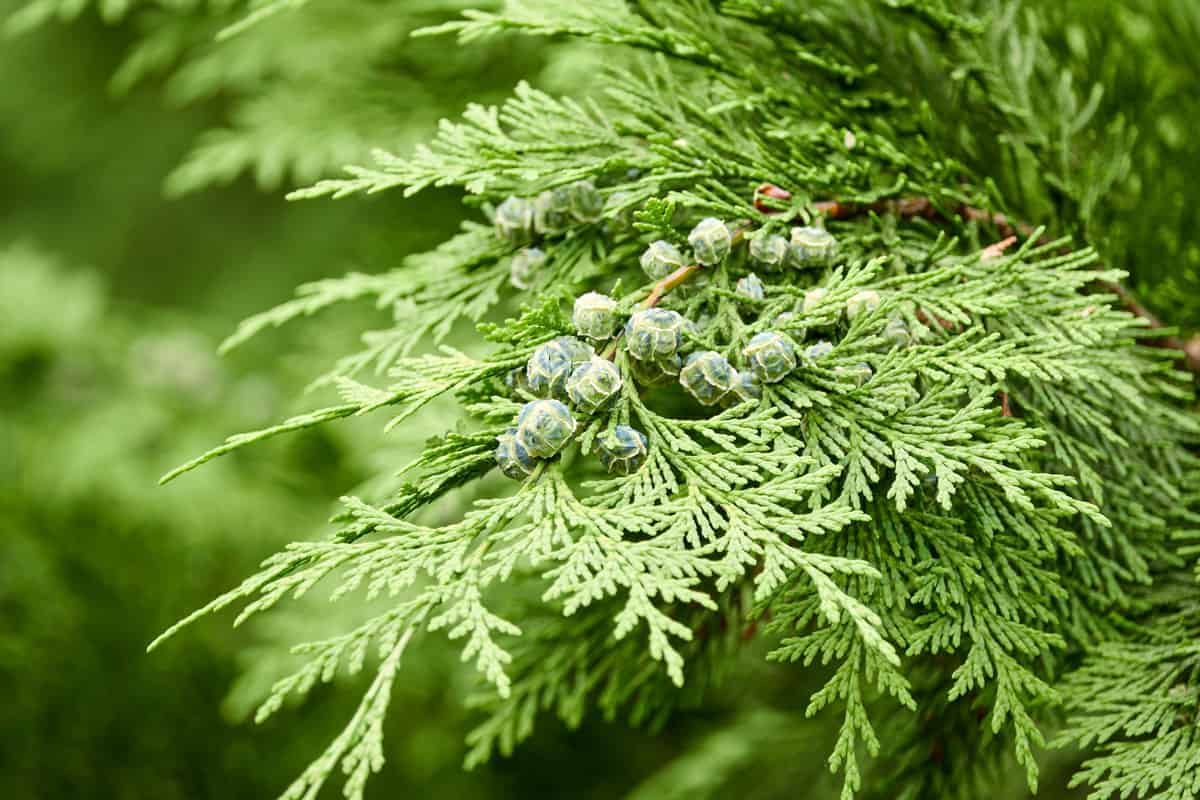
Whether you have a conifer growing in your garden or want to plant one, you may wonder if using bone meal or wood ash on your plant is a good idea. We found that using these two additives isn't generally helpful, as they don't contain enough nitrogen that this evergreen species needs.
Furthermore, conifers don't require much attention. So, if you decide to use a soil amending product or material on one, please do it sparingly.
Even if you're trying to help, overfeeding a conifer can be detrimental to its health. If you want to use bone meal or wood ash alongside a fresh pile of compost for your conifer, that's an idea we can get behind!
Made it to the end? Check out these other related garden articles below!
How To Shape A Conifer Tree Into A Spiral [Step-By-Step Guide]
Are All Gardenias Evergreen - Do They Stay Green All Year?
4 Best Fertilizers For Endless Summer Hydrangeas [And How To Use Them]

